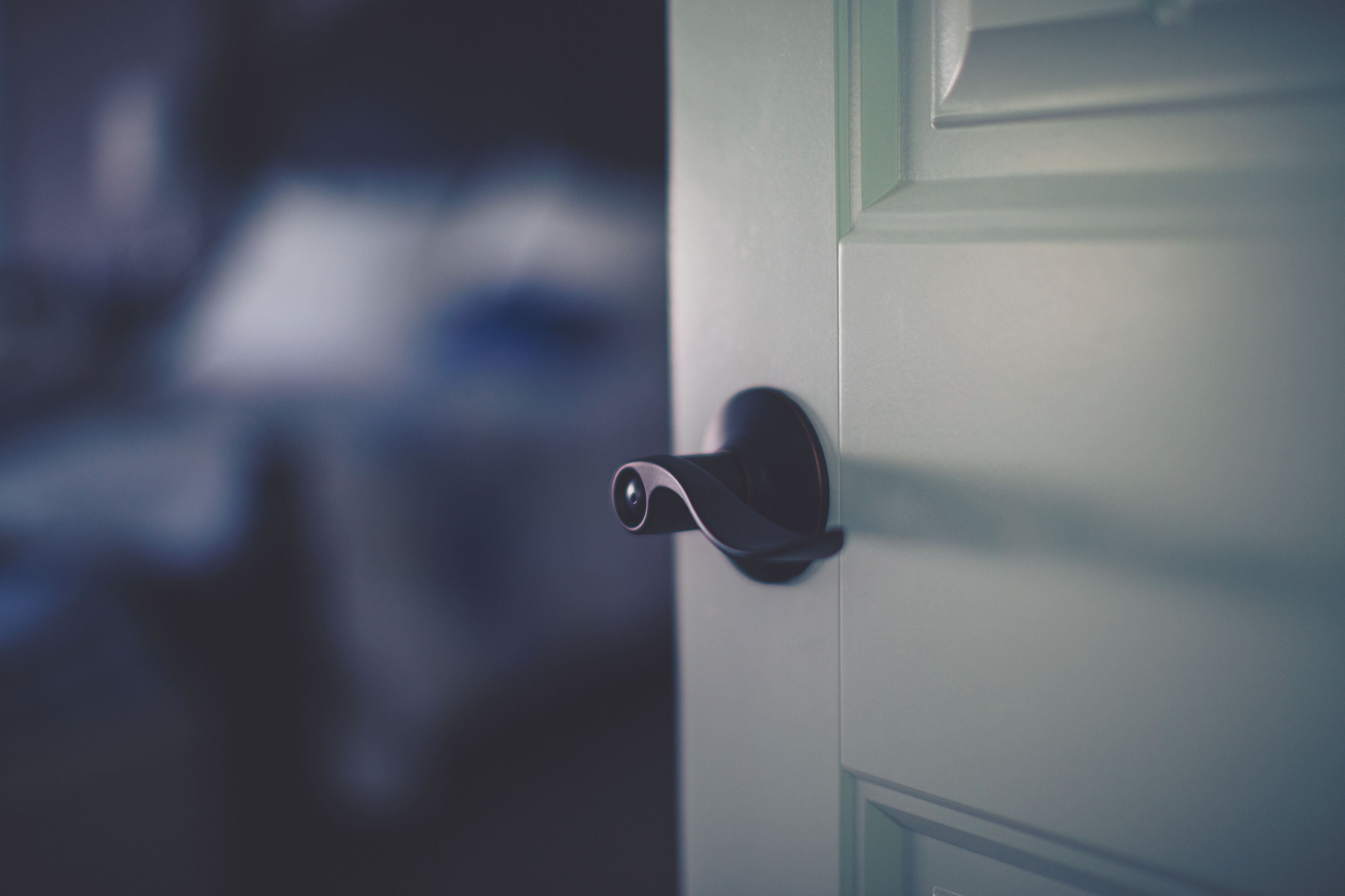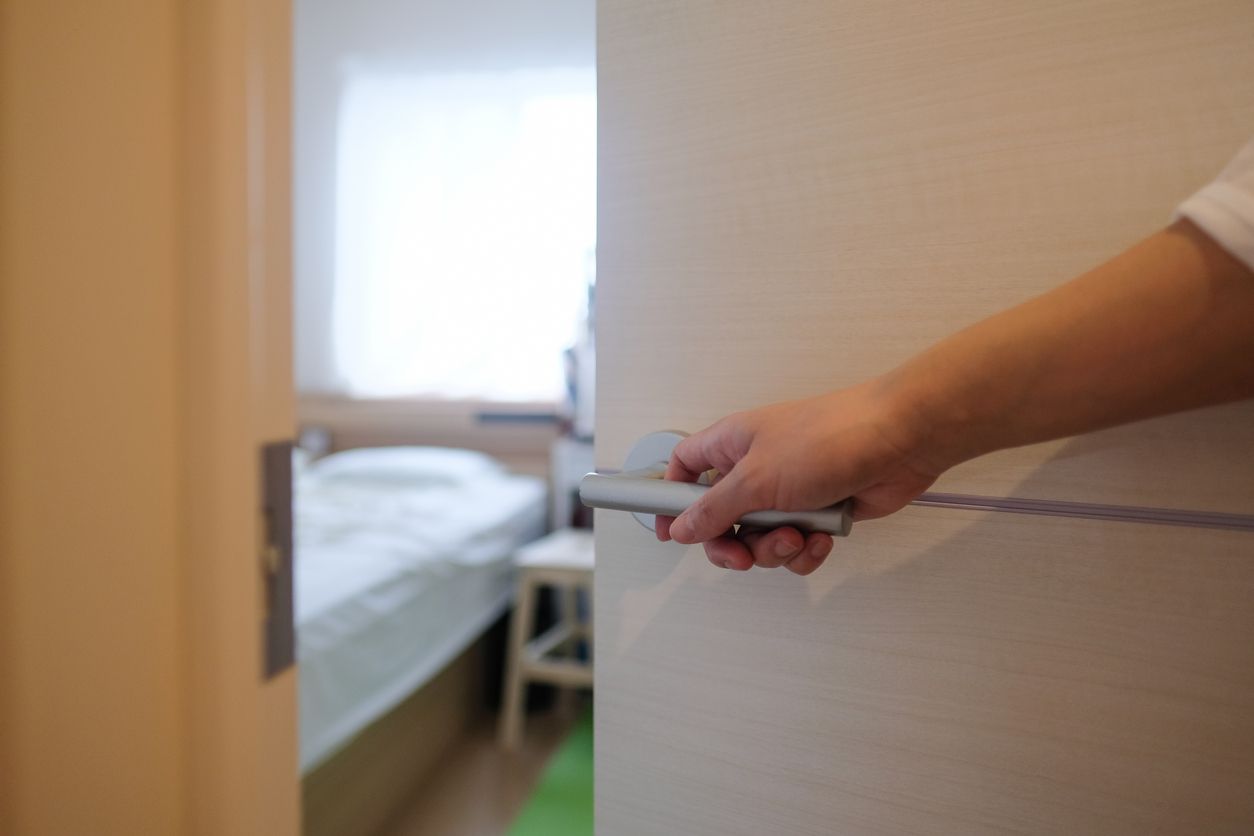The Importance of Privacy and Personal Space: Keeping Bedroom Doors Closed

In a world where boundaries are often blurred and personal space can feel increasingly encroached upon, the importance of a private sanctuary within our homes cannot be overstated. The bedroom, often considered a haven for rest and rejuvenation, plays a crucial role in our well-being. Keeping the bedroom door closed serves as a tangible manifestation of this need for privacy and personal space, offering a myriad of psychological benefits.
The Psychological Benefits of Privacy
A closed bedroom door acts as a physical barrier, separating our personal space from the external world. This separation allows us to establish a sense of control over our environment, fostering a feeling of security and autonomy. The ability to retreat into our own space, free from distractions and intrusions, is essential for mental and emotional well-being. This sense of privacy allows us to recharge, reflect, and reconnect with ourselves.
The Role of Closed Doors in Fostering Security and Control
A closed bedroom door provides a sense of security and control, particularly in situations where we feel vulnerable or exposed. This feeling of control extends beyond physical safety and encompasses emotional well-being. When we can retreat into our private space, we can shed the pressures and demands of the outside world and create an environment conducive to relaxation and stress reduction. A closed door allows us to create a boundary between our private and public selves, offering a sense of protection and empowerment.
The Impact of Open vs. Closed Bedroom Doors on Sleep Quality and Relaxation
Research suggests that a closed bedroom door can significantly impact sleep quality and relaxation. Studies have shown that individuals who sleep with their doors closed tend to experience deeper and more restful sleep, as the darkness and quiet create a more conducive environment for sleep. Conversely, an open door can expose us to external stimuli, such as noise, light, and temperature fluctuations, which can disrupt our sleep patterns and lead to feelings of restlessness and fatigue.
Creating a Conducive Environment for Focused Work or Study
A closed bedroom door can also create a more conducive environment for focused work or study. By shutting out distractions from the outside world, we can concentrate more effectively and achieve a greater sense of productivity. The separation provided by a closed door allows us to create a dedicated workspace, free from interruptions and distractions, allowing us to engage in tasks that require deep concentration.
Practical Considerations for Keeping Bedroom Doors Closed

Maintaining a peaceful and productive environment within your bedroom requires careful consideration of various practical aspects. Keeping your bedroom door closed can significantly contribute to achieving this, but it’s crucial to address potential challenges and ensure a comfortable and functional space.
Noise Control and Minimizing Distractions
Noise pollution can significantly disrupt sleep and concentration. Keeping your bedroom door closed can help reduce noise levels, but additional strategies are essential.
- Consider using noise-canceling headphones or a white noise machine to mask external sounds.
- Install soundproof curtains or blinds to minimize noise from outside sources.
- Ensure your windows are well-sealed to prevent noise from entering.
Ventilation and Airflow
While keeping the door closed offers privacy, it’s essential to ensure adequate ventilation for a healthy and comfortable environment.
- Open a window for a short period daily to allow fresh air circulation, even with the door closed.
- Invest in an air purifier to remove allergens, dust, and other pollutants.
- Consider using a fan to circulate air, especially during warmer months.
Light Control and Sleep Environment
Controlling light levels is crucial for a restful sleep. Keeping your bedroom door closed can help minimize light intrusion, but additional measures are necessary.
- Use blackout curtains or blinds to block out external light sources.
- Minimize the use of electronic devices before bed, as their blue light can disrupt sleep.
- Ensure your bedroom is adequately lit for daily activities but dimmable for relaxation and sleep.
Maintaining a Clean and Organized Bedroom
Keeping your bedroom door closed can help maintain a sense of order and privacy, but it’s important to develop strategies for organization and cleanliness.
- Regularly declutter and organize your bedroom to create a sense of calm and spaciousness.
- Make your bed daily to create a sense of order and tidiness.
- Store items neatly in drawers, shelves, and closets to minimize clutter.
Cultural and Social Perspectives on Bedroom Doors

The act of closing a bedroom door is often perceived as a simple act, yet it carries significant cultural and social implications. Different societies have varying norms and expectations surrounding bedroom door closure, reflecting deeply ingrained values about privacy, family dynamics, and personal space.
Cultural Norms and Bedroom Door Closure
The significance of bedroom door closure varies greatly across cultures. In some cultures, it is considered essential for maintaining privacy and autonomy, while in others, open doors symbolize openness and familial unity. For instance, in many Western cultures, keeping bedroom doors closed is seen as a sign of respect for individual privacy and a way to create a personal sanctuary. Conversely, in some Asian cultures, open doors may be preferred, signifying a sense of family closeness and interconnectedness.
Implications of Bedroom Door Closure on Family Dynamics
The practice of keeping bedroom doors closed can have a profound impact on family dynamics and relationships. In families where privacy is highly valued, closed doors can foster a sense of individual autonomy and independence, allowing family members to engage in personal activities without interruption. However, in families where open communication and shared spaces are emphasized, closed doors may be perceived as a barrier to interaction and connection.
Personal Preferences and Bedroom Door Closure
The decision to keep bedroom doors open or closed is often influenced by personal preferences and individual needs. Some individuals may prefer a sense of privacy and seclusion, finding comfort in a closed door that creates a personal space. Others may feel more comfortable with open doors, valuing the sense of openness and connection it provides.
Bedroom Door Closure as a Symbolic Gesture, Keeping bedroom doors closed
Beyond practical considerations, bedroom door closure can also serve as a symbolic gesture. For example, a teenager closing their bedroom door might be seen as a sign of asserting independence and establishing personal boundaries. Similarly, a couple closing their bedroom door may be interpreted as a desire for intimacy and privacy.
Keeping bedroom doors closed – Nah, keeping your bedroom door closed isn’t just about privacy, it’s about creating a sanctuary. Imagine a cozy retreat with a rustic king bedroom suite , where the warmth of the wood and the soft bedding envelop you. Closing the door lets you shut out the world and fully embrace that feeling of peace and relaxation.
So, go on, close that door and create your own little haven!
Keeping your bedroom door closed at night is a good habit for privacy and security. But what if you find yourself locked out? Don’t fret! There are a few simple ways to get back in, like checking for a spare key or using a credit card to gently pry open the latch.
If you’re feeling adventurous, you can even try using a bobby pin! For more detailed instructions on how to unlock a bedroom door, check out this helpful guide: how to unlock a bedroom door. Once you’re back in, remember to keep your bedroom door closed for peace of mind!
